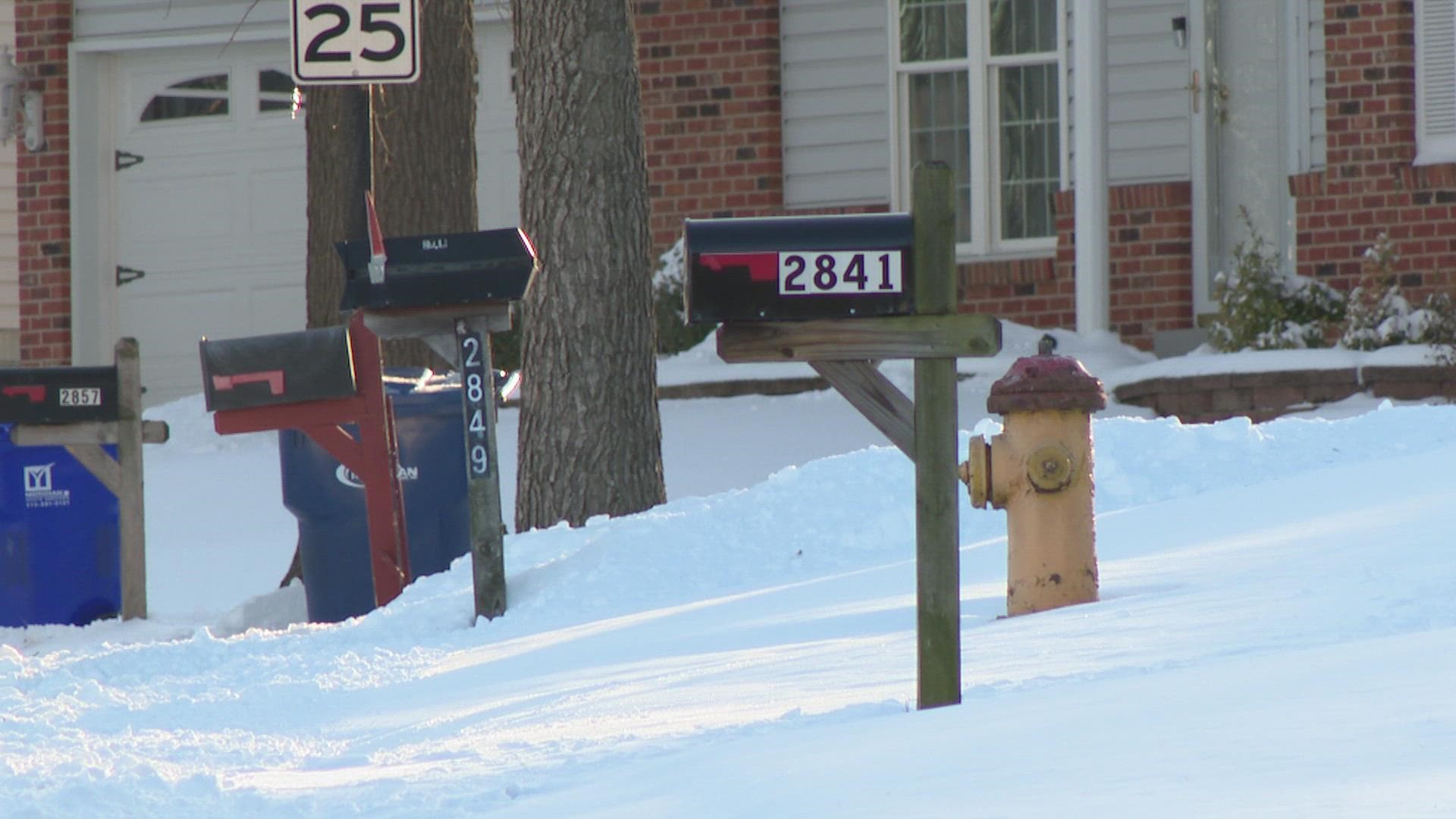ST. LOUIS — It's a date Missourians are all too familiar with: December 31. The deadline every year to pay taxes on your personal property. But what if you didn't have to do that anymore?
Republican State Sen. Bill Eigel of St. Charles is working to make that happen, and it would start with St. Charles County.
"We're already living in an environment right now where the government is taking more from your checkbook than it has ever taken before,” Eigel said.
Eigel is on a mission to wipe out personal property taxes beginning with his county.
"There are a lot of working- and middle-class families in Missouri that are being harmed just for the crime of owning a car,” he said.
Lawmakers are taking up the matter in Jefferson City. They heard from a local firefighter who wants them to think twice.
"There's a flip side of the story that needs to be told and people need to understand,” said Cottleville Fire Protection District Chief Skip Stephens.
Stephens is concerned because localities benefit from a big portion of personal property taxes and he fears he'd have to make cuts.
"The real ramifications would be less firefighters in the county, less ambulances in the county, less service provided,” Stephens said.
5 On Your Side pulled the numbers to find out who benefits from personal property taxes in St. Charles. Here’s a breakdown from 2021:
- $12.4 million for fire districts;
- $78.3 million for schools;
- $7.4 million for cities;
- $4.3 million for the ambulance district;
- $3.2 million for the libraries;
- $3.2 million for community colleges;
- $3.3 million for roads and bridges;
- $2 million for developmental disability services;
- $600,000 for dispatch and alarm services.
"This is one time I just can't be silent,” St. Peters Mayor Len Pagano said. He believes taxes exist for a reason.
"Right now, we need snow removal, but that's not free. But someone at the Capitol level thinks the money is going to appear,” Pagano said.
Eigel is firing back, saying personal property taxes would only be cut if localities see their general revenues go up.
5 On Your Side confirmed revenues in St. Charles County have increased over the past few years.
2019 Revenues from Personal Property Taxes: $100.6 million
2020 Revenues from Personal Property Taxes: $107.8 million
2021 Revenues from Personal Property Taxes: $115.5 million
Eigel claims excess funds localities get from other taxes and government fees would keep critical services going while relieving residents of personal property taxes.
"Really there's no one in danger that's losing any money,” he said.
Some county officials just aren't sold.
"It's easy to say in government, ‘We have record amount of dollars and this and that.' That's easy to say, but we find ourselves in a place in 2022 with incredible inflation, the labor market is crazy like we've never seen before, the cost of goods and services are difficult to keep up with and we rely on inflationary increases from increased assessments. ... We rely on what Senate Bill 649 would take away,” Stephens said.
St. Charles County Executive Steve Ehlmann, also a Republican, believes there are a lot of unanswered questions about the proposal.
“I have asked for information on how this bill will affect homeowner’s real estate taxes. My hope is that our legislators will spend time in Jefferson City figuring out how this change will work," Ehlman said.
"I have three concerns. First, about the reports I am hearing from the county’s special jurisdictions regarding their potential loss of revenue," Ehlman said.
Secondly, Ehlman is worried that removing personal property tax passes the expense disproportionally from vehicle owners and business owners to real estate owners.
"Third, the county assessor is not equipped with the technology needed to set individual percentages for each taxing jurisdiction for each item of personal property for the school districts, fire districts, the ambulance district and cities. Upgrading the county assessor’s existing system to meet that need would cost approximately $2 million,” Ehlmann said.
The bill is moving forward for further consideration after making it out of a Senate committee.

